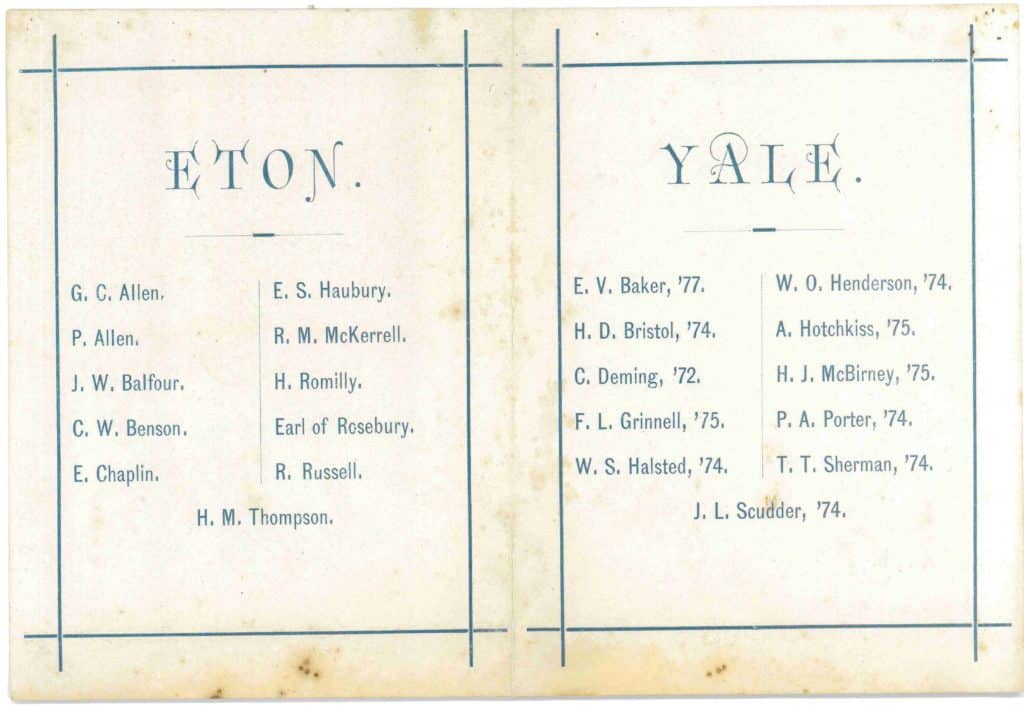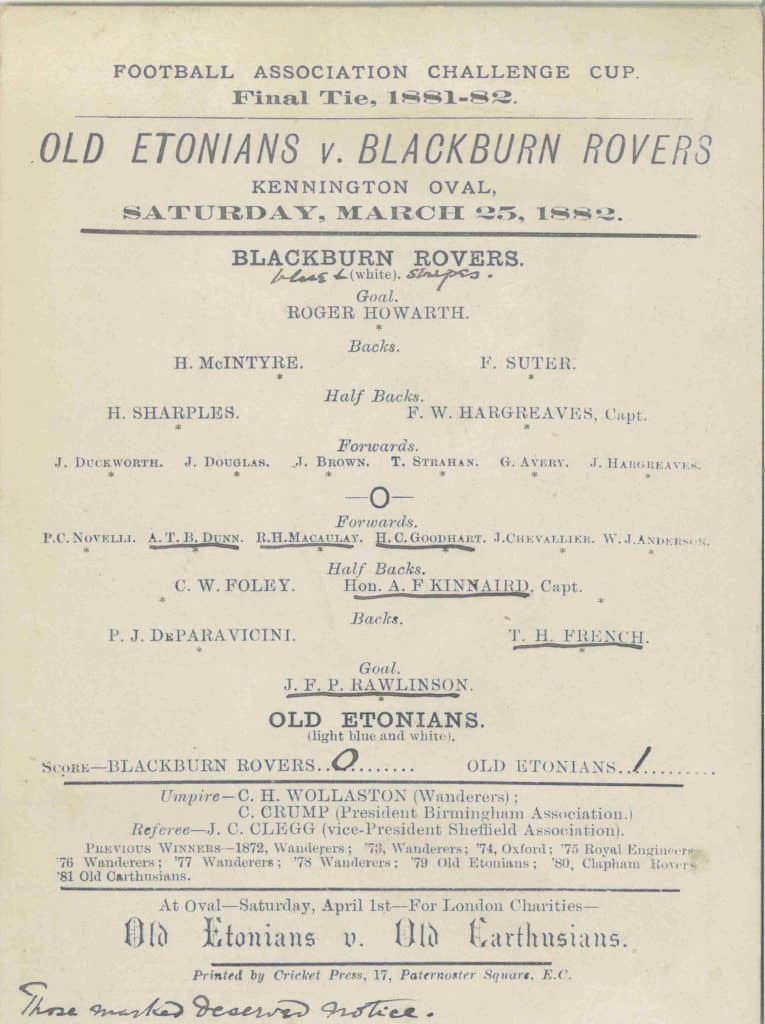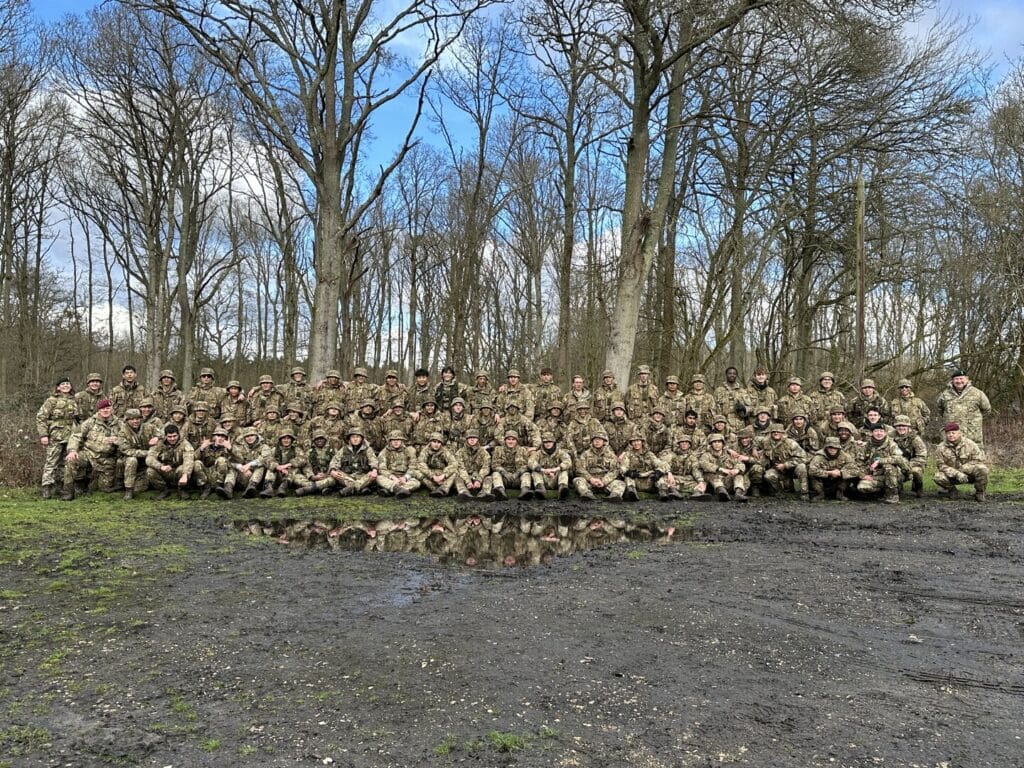With the World Cup in full flow, there’s never been a better time to touch upon Eton’s deep-rooted connection with the beautiful game.
Despite FA Cup triumphs in 1879 and 1882 putting Eton’s name on the global footballing map, Eton had nurtured talent for decades prior to these finals. This was largely thanks to Lord Arthur Kinnaird, regarded by some as the first football superstar. His love for the game was ever present during his stint as an Etonian (1861-65), so much so that it led to him setting up the Old Etonians Association Football Club in 1865. The team played regularly together but it wasn’t until 1878 that they were officially established. Lord Kinnaird’s career was nothing short of unbelievable. Amongst his extensive list of accolades, he won five FA Cup trophies. This record remained intact until 2010, when it was broken by Chelsea and England’s Ashley Cole. Lord Kinnaird appeared in nine FA Cup finals, a record which stands to this day, and even captained his country – Scotland – in a fixture against England in 1873. His illustrious career and immense talent were recognised at the time, no more so than the founder of the FA and OE Charlie Alcock, who described him as “without exception the best player of the day”.
However, Eton’s rich football heritage runs much deeper than the success of a few individuals. In December 1873, Eton participated in a fixture against Yale. This fixture made history by becoming the first match to take place between a British team and one from another country. Eton archives possess the matchday programme for this game, which is the oldest surviving matchday programme in the world. A year later, Eton reached their first FA Cup final in the 1874-75 campaign where they came up against a Royal Engineers side, who had suffered heartbreak in previous years by losing FA finals in both 1872 and 1874. The tightly fought contest was played in front of 2000 people at the Kennington Oval in London. The match ended in a 1-1 stalemate after extra time, leading to a replay three days later where the Old Etonians (OEs) were overcome 2-0 by the strong Royal Engineers side.

The following year, the OEs picked themselves up and went again for the coveted FA Cup trophy. They reached the final, after a narrow victory against Oxford University on 19 February 1876. Here, they faced a Wanderers side comprised of mainly public-school boys. Once again, they were unable to clinch the trophy after the first game, so the contest went to a replay where the OEs were comprehensively dismantled, losing 3-0. Two years, two defeats.
However, in 1879, the OEs conquered their unfortunate FA Cup final history. However, the manner in which they did so was not the most glamorous. The final against Clapham Rovers was described to be the “poorest FA Cup Final to date”. Nevertheless, as the phrase goes: a win’s a win, and after scoring in the 59th minute, the OEs saw out the rest of the game.
1882 came and the OEs were determined to write their name on the trophy for the second time in three years. The tournament was ever growing in popularity, with 84 teams entering. The OEs managed to navigate the early rounds, setting up a must win fixture against Notts County in the semis. After a narrow 1-0 win, they were into their 3rd FA Cup Final. Here, they were to face a strong opponent in Blackburn Olympic, boasting talents such as Fred Hargreaves and his brother John, both of whom were England internationals. With Lord Kinnaird’s captaining the side, the OEs put on a gritty and determined display, and a singular goal scored by William Anderson proved enough to secure victory on the day. This final went down in the history books as the last time an amateur team won the famous competition.

Almost 110 years after the 1882 triumph, a dinner was held at Eton College to commemorate this history writing victory and the long-standing relationship between Blackburn and the College. Much of Eton’s history in football can be explored in the College Archives, where memorabilia including match day programmes and rulebooks are found.
Visit the College Collections
The College Collections include art and artefacts, manuscripts and archives, rare books and natural history specimens, ranging in date from prehistory to the present day. Eton College’s museums and galleries are open to the public, free of charge, on Sunday afternoons between 2.30 and 5pm. The Museum of Eton Life is also open on Saturdays, 2.30 to 5pm. Please drop in any time during opening hours.



